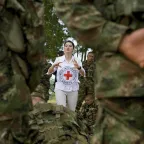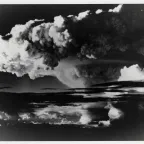Domestic law and IHL
For IHL treaties to be universally accepted, all states must adopt them through ratification or accession. States must then enact legislation and take practical measures in order for the rules to be …
For IHL treaties to be universally accepted, all states must adopt them through ratification or accession. States must then enact legislation and take practical measures in order for the rules to be …

International law regulates the methods and means of warfare. There are restrictions on weapons, on their use and on conduct. The principle of distinction requires parties to distinguish between …

The use of cyber operations as means or methods of warfare in armed conflicts poses a real risk of harm to civilians. It is essential to understand how international humanitarian law protects …

War affects women, men, girls and boys differently. Taking account of these differences when applying international human law will result in better protection for all. A gender perspective on …

Terrorism is a live threat in today’s world – and one that causes immeasurable human suffering. The international community has worked to confront this threat through a patchwork of counterterrorism …

While space objects have been employed for military purposes since the dawn of the space era, the weaponization of outer space would increase the likelihood of hostilities taking place there, with …
The red cross, red crescent and red crystal emblems provide protection for military medical services and relief workers in armed conflicts. National Societies in each country also use the emblems for …

Rape and other forms of sexual violence are prohibited in armed conflict under international humanitarian law. The ICRC works to prevent this crime and support survivors . Sexual violence and the law …

Since the only use of nuclear weapons in 1945, the world has wrestled with the issue of how international humanitarian law applies to such weapons. The International Red Cross and Red Crescent …

The interplay between international humanitarian law (IHL) and Islamic law of war Islamic law of war In our engagement with communities affected by armed conflict and other situations of violence, …

Try one of the following resources:
Created in 1863, the ICRC library, alongside the ICRC archives, provides an indispensable documentary reference on the organization itself and international humanitarian law.
International humanitarian law is based on a number of treaties, in particular the Geneva Conventions of 1949 and their Additional Protocols, and a series of other instruments.
Customary international humanitarian law consists of rules that come from "a general practice accepted as law" and that exist independent of treaty law.